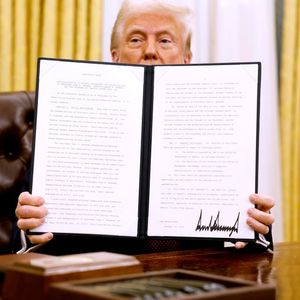Bitcoin (BTC) frenzy is sweeping across the US following Donald Trump’s victory in the November presidential election, with Kentucky becoming the latest state to introduce legislation aimed at establishing a Bitcoin reserve. Kentucky Joins The Bitcoin Reserve Club Kentucky has become the 16th US state to introduce legislation seeking to create a Bitcoin reserve. Introduced by State Representative Theodore Joseph Roberts, the bill, titled HB376 , proposes allowing the State Investment Commission to allocate up to 10% of excess state reserves into cryptocurrencies. The bill states: The total amount of excess cash invested under subsection (9)(k), (l), and (m) of this section shall not, at the time of the investment is made, exceed ten percent (10%) of the total amount of excess cash invested under subsection (9) of this section. While the bill does not explicitly mention Bitcoin, its definition of eligible digital assets ensures that only BTC would qualify. According to the bill, any digital asset included in the reserve must have a market capitalization exceeding $750 billion and cannot be a stablecoin. As of today, BTC is the only cryptocurrency meeting these criteria, with a total market capitalization of over $1.9 trillion at the time of writing. In contrast, the second-largest cryptocurrency, Ethereum (ETH), has a market cap of approximately $334 billion. With this legislation, Kentucky joins a growing list of states pursuing similar Bitcoin reserve initiatives. Other states that have introduced comparable bills include Arizona, Alabama , Florida , Massachusetts , Missouri, New Hampshire, North Dakota, South Dakota, Ohio, Oklahoma, Pennsylvania, Texas, Utah, Kansas, and Wyoming. However, despite numerous proposals, none of these bills have been implemented so far. Wyoming’s WYHB201 bill failed to pass a committee vote, while North Dakota’s ND HB1184 bill was voted down in the House. Conversely, Utah’s HB230 bill has successfully passed the House and advanced to the Senate, marking the first Bitcoin reserve bill to clear a chamber vote. Whether it will pass the Senate remains to be seen. Could National BTC Reserves Be Next? Globally, more countries are considering the establishment of strategic BTC reserves, aligning with a recent report suggesting that nation-state adoption will drive the next phase of cryptocurrency expansion. For example, US Crypto Czar David Sacks recently stated that the federal government is exploring the feasibility of a national BTC reserve. Similarly, Brazil is considering adding BTC to its National Treasury to diversify financial holdings. Meanwhile, countries such as El Salvador and Bhutan have already accumulated substantial Bitcoin reserves. At press time, BTC trades at $99,620, up 1.5% in the past 24 hours.



















